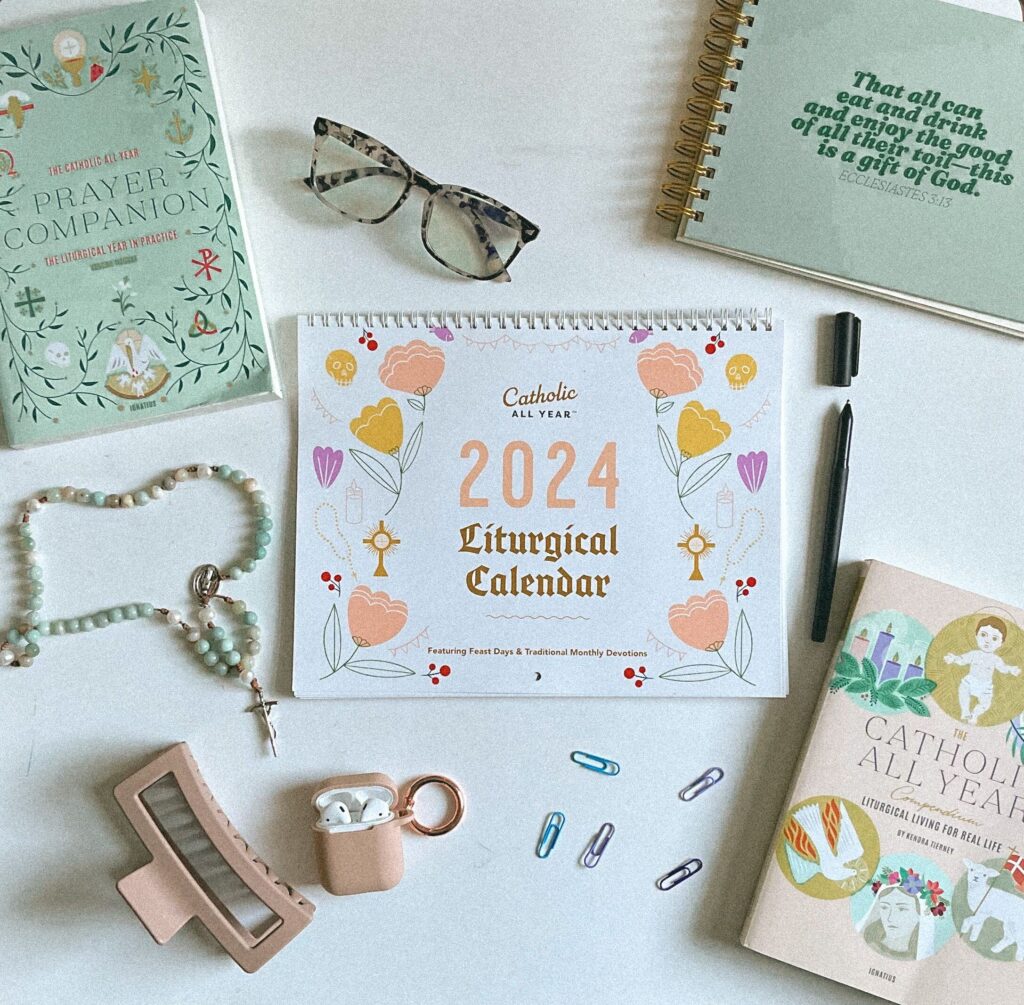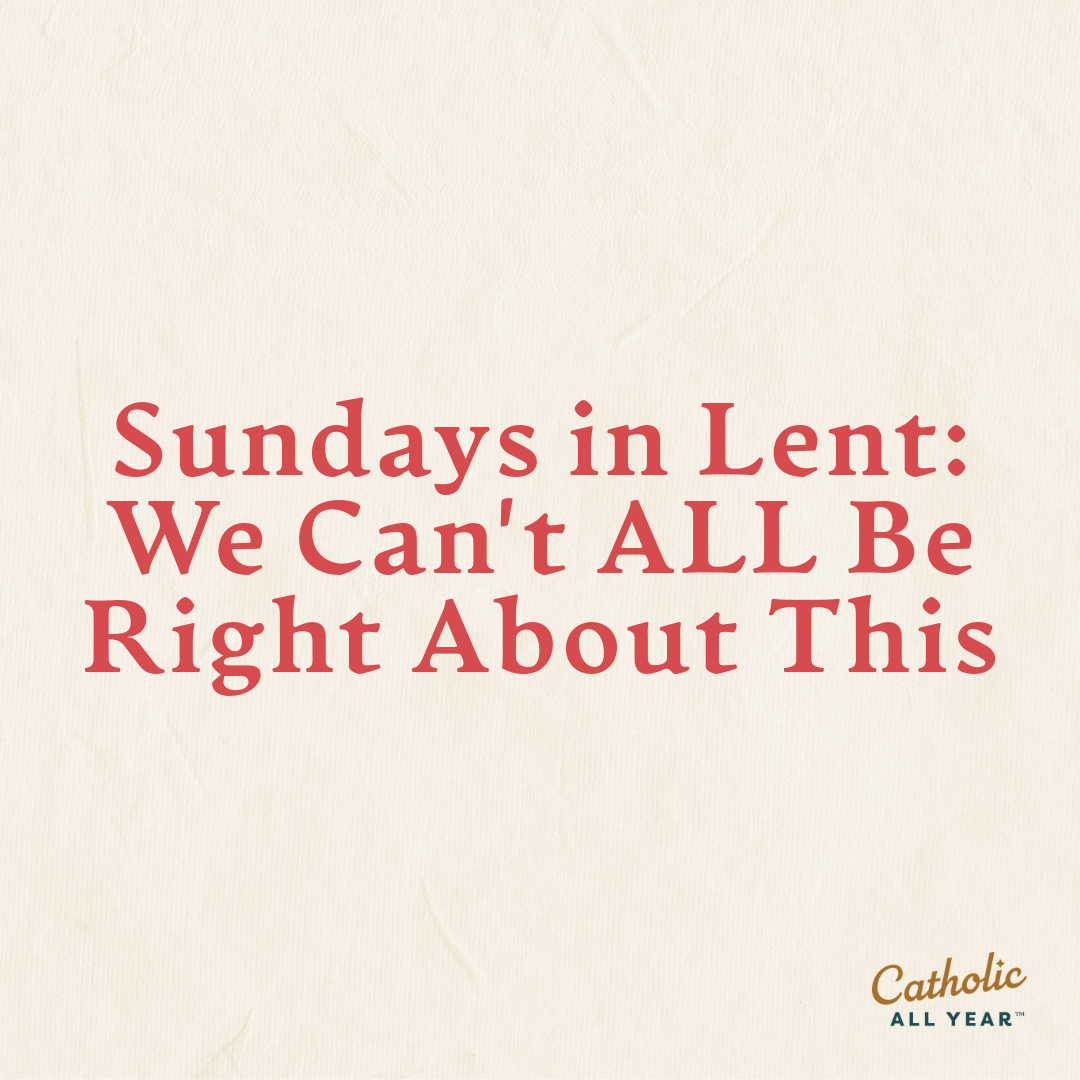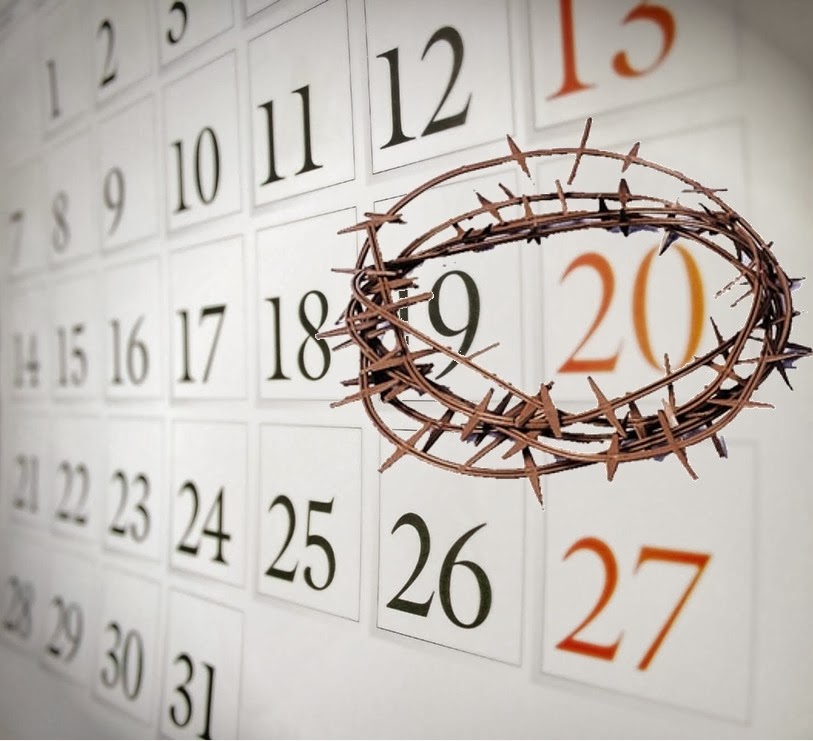Sundays in Lent seem to be a genuine source of confusion among Catholics. Both the “I don’t cheat on Sundays” people and the “Sundays don’t count” people believe that Church teaching is on their side. Or perhaps they just think there isn’t a formal Church teaching on it, so it is a matter on which good Catholics are allowed to disagree.
But we can’t ALL be right, right?
There are 40 days of Lent, because Jesus spent 40 days in the desert in prayer and fasting before beginning his public ministry. This was three years before the events of Holy Week. Early Christians began observing 40 days of prayer and fasting immediately before the Triduum, in order to make reparation for their sins and prepare themselves for the celebration of Christ’s resurrection on Easter. As the “no cheating” folks like to point out, Jesus did not come in from the desert on Sundays. But, here’s the thing. When Jesus was in the desert, Sundays weren’t Sundays yet. When Jesus went to the desert, he had not yet begun his ministry, he had not yet suffered his passion, he had not yet died for our sins and risen again on the third day. But once that very first Easter happened, Sundays became something set apart, something special. Each and every one is a feast. The very earliest Christians recognized that. Medieval Christians were on board with it. Pre-Vatican II types knew a Sunday when they saw one, even in Lent. That’s why, when you count up the days on the calendar, the season of Lent is NOT 40 days, it’s 46 days. Because, from the very beginning of Lents, Sundays were not included as part of the Lenten fast. It’s not that fasting isn’t REQUIRED on Sundays and Holy Days of Obligation in Lent. It’s actually FORBIDDEN.
Now, most of us do not fast from food except as required on Ash Wednesday and Good Friday. Most of us choose to fast from something else, like sweets or television, instead. But that’s still a fast. And fasts don’t apply on Sundays.
We’re not required to have sweets or watch TV on any particular Sunday, of course, so we’re not required to seek them out on Sundays during Lent either. But if the opportunity arises to partake in a licit pleasurable activity on a Sunday during Lent, we shouldn’t refrain because of our Lenten disciplines. Every Sunday is a little Easter. Every Sunday should feel like a celebration. If your Lenten discipline is a real, prayerful struggle, that’s great. But Sunday isn’t the place to struggle against licit pleasures.
If, however, we have given up something that is immoral, or at least leans in that direction (like my Lenten no yelling policy), continuing to abstain from that behavior would certainly be a good idea. And any good habits we are trying to add to our lives during Lent shouldn’t be abandoned on Sundays.
If you’ve chosen to give up something for Lent, like going to the movies, but you only ever go to the movies on Sundays, may I suggest that that’s not a particularly good thing to give up for Lent? Here are some other ideas.
I’ve written on Lent before. Many times. But the thing I most want to emphasize is that we cannot punish ourselves into being deserving of God’s love and forgiveness. Lent is not a time to punish oneself. Lent is a time to perfect oneself.
A perfect Christian life respects the rhythm of the Christian year and the rhythm of the week. Even within the season of Lent, there are days that are meant to be celebrated. Let’s not deny those days to ourselves and to our Church.
Happy Sunday everyone!
Update: some information a reader shared in the comments of this post, made me panic for a bit and write a follow-up post. But then, I talked to Scott P. Richert of the About.com Catholicism page, and he wrote a nice little update to his original post on how the days of Lent are calculated, in response to my concerns about some of the excellent points raised in the comments here. I have since come full circle and now stand behind the content of this post again. _________________
If you’d like to keep track of ALL the feasts of the Catholic liturgical year, I’ve created a wall calendar to help you do it!

It features the all the feasts and fasts of the Universal Calendar and then some, illustrated with images featuring the traditional Catholic monthly devotions. It’s an easy visual way to bring liturgical living into your home. You can keep track of the feasts and fasts and seasons of the Catholic year, and be reminded to focus your prayer on a different aspect of our faith each month. January:The Holy Name of Jesus February: The Holy Family March: St. Joseph April: The Blessed Sacrament May: Mary June: The Sacred Heart of Jesus July: The Precious Blood August Immaculate Heart of Mary September: The Seven Sorrows of Mary October: The Holy Rosary November: The Poor Souls in Purgatory December: The Immaculate Conception
As the Church year begins with December, so does this calendar. You get December 2018 through December 2019, thirteen months. Available for purchase here. Thanks!





